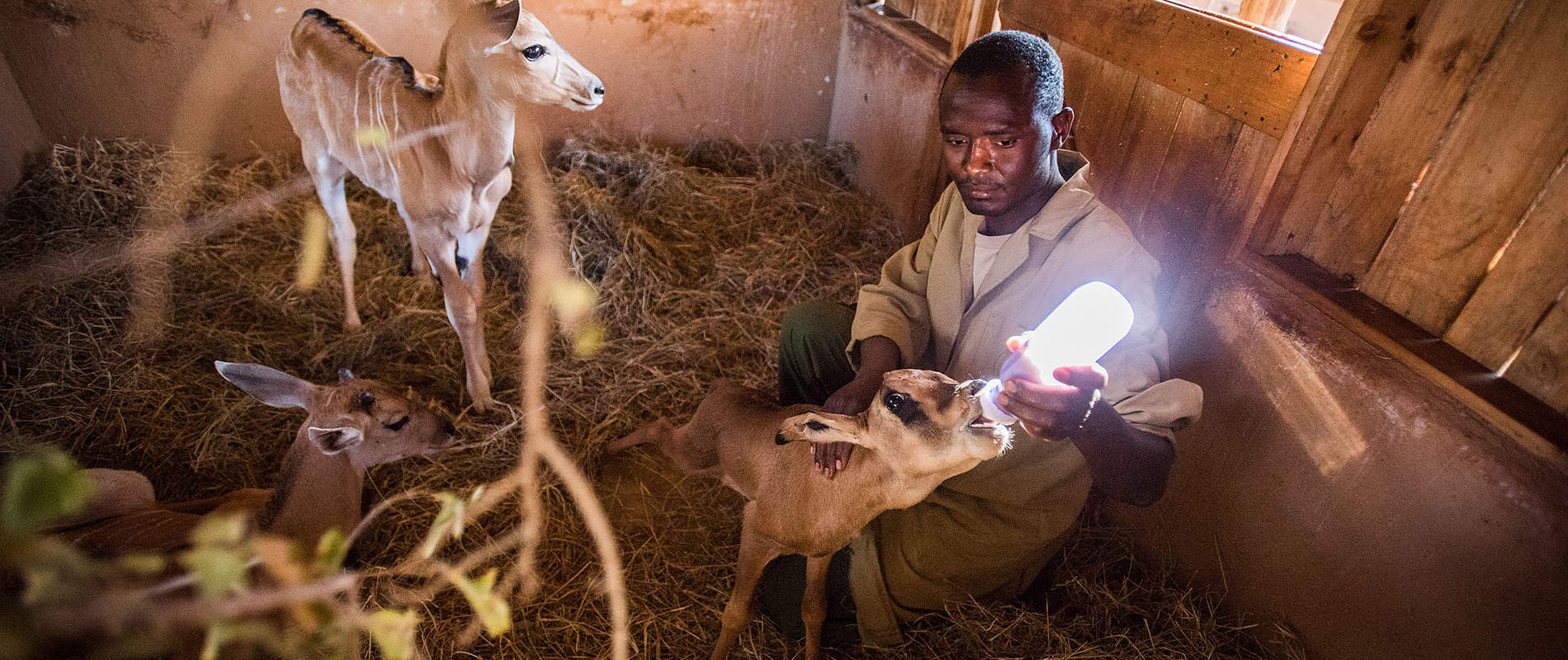While nature pays no heed to human constructs of time, it certainly adheres to the seasons. And so, while we enjoyed unusually bountiful rains in Tsavo for the greater part of this year, we knew there was a dry season waiting for us on the other side.
Tsavo is now in the heat of the dry season, a period that always brings about challenges — not only for wildlife, but also for those who protect the wilderness. The ecosystem has been besieged by bushfires on an unprecedented scale. Ironically, the rains played a key role in fuelling the flames: The proliferation of vegetation they nurtured is now bone dry, transforming the landscape into a veritable tinderbox. Working with the KWS and other stakeholders, our teams have been tirelessly fighting blazes since April, when the first bushfire erupted. All told, well over 35 separate fires have erupted across the Tsavo Conservation Area, and we are braced for more to come.



While larger animals can outrun bushfires, smaller creatures aren’t as fortunate. As a result, an eclectic little group of orphans have come into our care these past months. First came Rukinga, a newborn oryx who was plucked from the flames that engulfed Rukinga Ranch. Shortly thereafter, we rescued Susu, a tiny eland, from the fires in the Chyulu Hills. Moto, another eland, this time rescued from Taita Ranches, rounds out our trio of antelope orphaned by the bushfires. Most recently we have added to the mix a baby orphaned ostrich called Bristle who was fortuitously discovered and rescued from the Northern Area of Tsavo East where our teams have been fighting fires as well.

Rukinga: newborn oryx rescued from Rukinga Ranch

Bristle: baby ostrich rescued in the Northern Area of Tsavo East
These three join an eclectic group of orphans we are currently raising at our Kaluku Field HQ. Already, the location serves as a neonate elephant Nursery. Its climate, which is warm in comparison to Nairobi, makes it a perfect destination for fragile newborns to receive intensive care. Apollo the rhino, who is coming up on the first anniversary of his rescue, is an increasingly burly presence at Kaluku. Poppadom the tree squirrel is as petite as Apollo is large. He was found abandoned in July, and now he is finding his footing with us. Already he is comfortable flitting around the tree canopy, and we suspect he will make the transition to the wild shortly. Oka, an oryx who came into our care over a year ago, was delighted to have Rukinga — another of her kind — enter the mix. We remain very much connected to the orphaned kudus we have raised and reintegrated back into the wild, particularly Sala and Sabassa. So accepted were they by their wild counterparts that they have both bred successfully, becoming mothers! They still visit us from time to time, to catch up with the people who raised them and show off their babies.

Oka with a trio of kudus at our Kaluku HQ


Our Kaluku menagerie is forever fluid, with more coming into the fold all the time. We recently moved our pair of baby buffalos, Cheza and Ivia, to our Voi Reintegration Unit. This is a suitable place for our more boisterous orphans, as they can head out with the dependent elephant herd and fraternize with wild herds. Initially, the elephants charged Cheza and Ivia relentlessly, but they stood their ground and simply ignored all the fuss, and now their presence goes virtually unnoticed.



Orphaned zebras Diria and Nzuki round out the Voi herd. They still remain close to their Keepers, who wear their distinctive black-and-white striped coats when they are on zebra duty. Zebras imprint on their mothers’ stripes when they are born, and so it is important they grow up familiar with them. In the past, we have made the mistake of not donning these coats, and we learned our lesson: When David and Daphne raised Punda the zebra in the 1970s, they raised him alongside Stroppy the rhino. He grew up very much thinking he was a rhino and developed an unfortunate habit of biting rhinos’ tails, which ultimately cost him his life. Needless to say, we have been very careful ever since, and Diria and Nzuki are firmly focused only on each other’s company.


Raising a menagerie of orphans, one learns so much about different species and how to best prepare each one for a wild life. Be it fires or floods, at the hands of humans or through natural circumstances, we open our door to any wild creature who needs our help, not just the elephants and rhinos we are best known for — For those orphans left behind, we will be there to provide a family and a future, until they are ready to reclaim their place in the wild.
